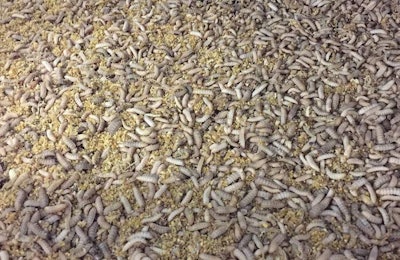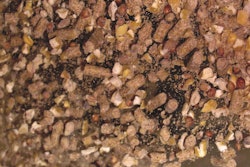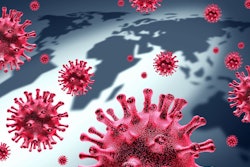
Encouraged by Green Deal endorsement, IPIFF sets goals for approval of insect meal in animal feed
Proponents of insect meal in animal feed have set their sights on desired regulatory approval goals, after insects got a shout-out in the EU’s recent Farm to Fork strategy release.
The Farm to Fork strategy, released in late May as part of the EU’s ongoing Green Deal reforms, identifies insects as one of several alternative feed materials that could reduce the EU’s dependency on traditional feedstuffs such as soybeans, thereby increasing the EU’s agricultural independence. The document also highlighted the role insects could play in reducing food waste and developing a “circular” economic system in the EU.
While the wider EU feed industry has expressed concern about the direction outlined in the Farm to Fork strategy, the International Platform for Insects for Food and Feed (IPIFF) sees the document as an opening to move the needle on several of the organization’s regulatory goals.
“This endorsement, in our view, confirms that insects and other novel sources of proteins represent one of the solutions to making the EU’s food systems more sustainable,” Christophe Derrien, secretary-general for IPIFF, said in a statement.
Shortly after the Farm to Fork release, IPIFF published its own brochure detailing specific regulatory actions it believes could play a “concrete role” in making the direction outlined by the strategy a reality.
According to Derrien, the authorization of new substrates is of prime importance for insect feed operators. IPIFF would like to see the authorization of a wider range of former foodstuffs for use as insect substrate — especially foods containing meat and fish — as it believes this would allow the insect sector to maximize its potential to reduce food waste.
IPIFF also hopes to see the authorization of insect meal for use in feed for a greater variety of species, including poultry and swine. This would open new opportunities for insect farmers, and make strides toward the Farm to Fork goal of replacing soy with home-grown novel protein ingredients. Increased accessibility to alternative proteins would ease the transition toward more sustainable food systems for other agrifood sectors, IPIFF argues.
Likewise, the creation of organic standards for insect farmers would contribute to the EU’s goal of converting 25% of the continent’s agricultural operations to organic practices by the year 2030, according to IPIFF.











